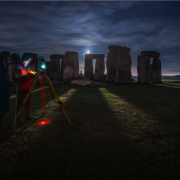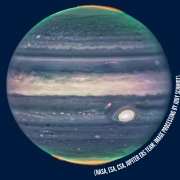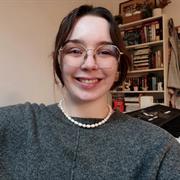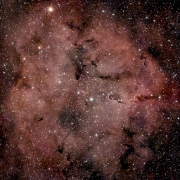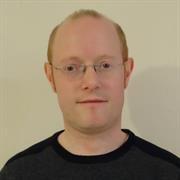Tuesday 10th March 2026 Sighting the Sun – and Moon? – at Stonehenge
Professor Clive Ruggles, University of Leicester
The image is © English Heritage/André Pattenden,
The connection between Stonehenge and summer solstice sunrise is well known, but decades of over-speculation, by both astronomers and archaeologists, concerning the use of the monument for observations of the sky have led many to steer well clear of the subject. In the first part of this talk I will describe what we can sensibly say about the relationship of Stonehenge to the sun, how this relates to more conventional archaeological evidence that has been uncovered in recent years, and what it might have meant to the people who built and used Stonehenge.
But what about the moon? We have just passed a major lunar standstill, an event occurring every 18.6 years around which time the moon can be seen at fortnightly intervals exceptionally far to the north and south. Was this — as some have suggested — known to our prehistoric forebears and was it marked and celebrated, along with the sun and the seasons, at Stonehenge and elsewhere?
I will describe some of the challenges in exploring these questions and what we can conclude with reasonable confidence about the cultural significance of the sun and moon to those who built and used Stonehenge.
Professor Clive Ruggles, University of Leicester
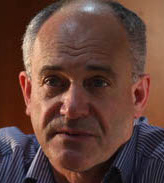
As Emeritus Professor of Archaeoastronomy at the University of Leicester, Clive has spent a lifetime investigating ancient people’s knowledge of the sky and the uses they make of what they perceive there. A lot of this involves studying the astronomical orientation of prehistoric monuments in Britain, Ireland and Europe — Stonehenge being a prime example. But Clive has also worked extensively on Hawaiian and Pacific star knowledge and in Peru, where in 2005 he co-discovered the 2200-year-old monumental solar observatory at Chankillo, which became a UNESCO World Heritage Site in 2021. In 2017 he was awarded the Royal Astronomical Society’s Agnes Mary Clerke Medal for a “lifetime of distinguished work in the overlapping areas of archaeology, astronomy and the history of science”.
Tickets (£6 or £3 for BRLSI or Herschel Society members and students, proceeds to the BRLSI) available here.
Herschel Society Members receive a discount code in the announcement that is mailed to them.

